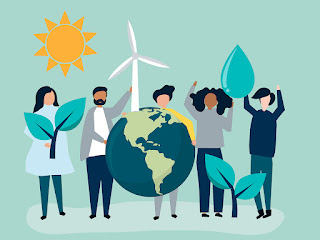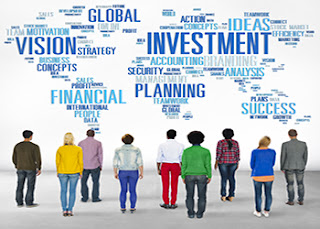Climate Change: Socio-Economic Impact
When you hear the
words climate change what’s the first thing that comes to your mind?
We’re sure the first thing you think about is the weather changing such as ice melting, ocean warming, sea-level rise, etc. We usually identify it as an environmental cause but it is more than that, it is a social crisis and compels us to address issues of inequality on many levels. For instance the differences between wealthy and poor countries; between rich and poor within countries; between men and women, and between generations.
It is always the most vulnerable people that bear the burden of the consequences of climate change while contributing the least to the situation. As the effects of climate change become more severe, millions of vulnerable people face growing challenges in terms of extreme events, health consequences, food security, livelihood security, water security, and cultural identity.
Climatic change threatens crops through shifting climate and agricultural zones, causing changes in production patterns due to rising temperatures, and causing more extreme and changing precipitation patterns. Such a calamity has the potential to destroy families' livelihoods and primary sources of income. For example, farmers depend on the climate and in case a situation out of the ordinary arises, it can take away their entire livelihood for that year. Strict policies and measures should be set but most importantly they should be followed in such extreme cases to ensure their security.
Poverty and inequality, which we have been fighting to alleviate for decades, will only worsen as a result of climate change because disadvantaged populations lack the resources to deal with repercussions such as major flooding or droughts, which may displace them or modify their way of life. For example, people living in disadvantaged areas are less likely to have air conditioning and even if they do, they’re only willing to use it when necessary due to the cost.
Gender-based violence
increases during times of economic and environmental instability. It has been
studied that domestic abuse increases after bushfires in Australia.
Women in villages of India still have to walk miles to reach a well for their water supply. When those wells dry up, these women will have to walk further in search of the next water resource; and in the process have to physically carry their share for longer distances. People working in farms, factories and other outdoor spaces will have to tolerate extreme heat conditions while doing labour.
Humid conditions in farms increase pests and other crop-destroying insects like locusts which will become a recurring threat to farmers and the nation as a whole. Rising ocean water temperatures and acidification are causing fish populations to decline. This will cause further harm to the fishermen communities that are already facing the loss of their livelihoods due to the industrialization of coastlines.
Thus, although climate change is a universal phenomenon and will impact everyone- the severity of the catastrophe will be unevenly divided. In our fight against climate change, we need to make sure no one gets left behind.
-Written by Anjie Kakar and Riya Relhan




Comments
Post a Comment